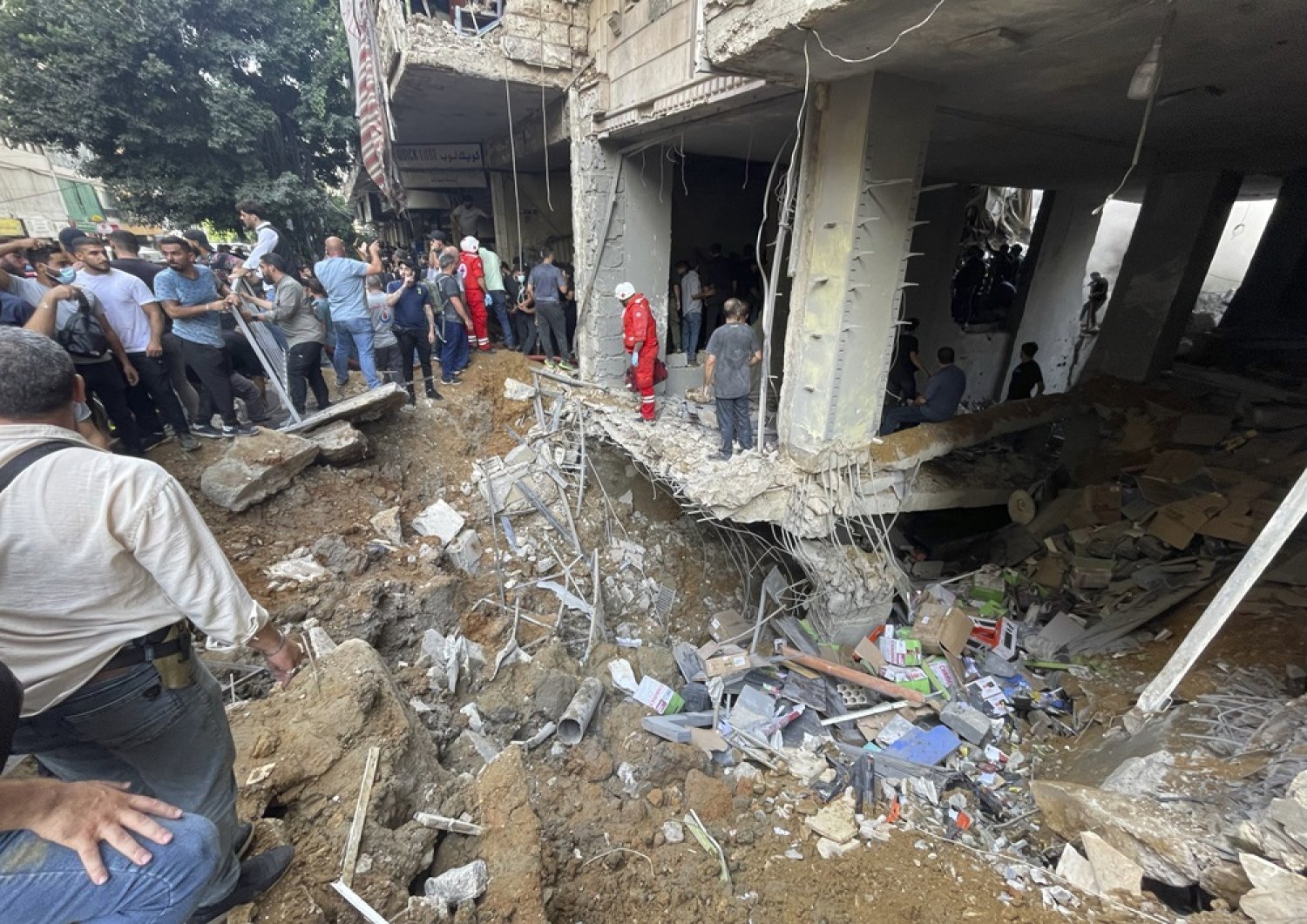At around 4 PM on September 20, an Israeli F-35 fighter jet launched three missiles targeting Beirut’s southern suburb of Dahieh. This is the fourth day Israel has conducted operations within Beirut, the latest of which was loud sonic booms and flares on Thursday evening, as Hezbollah Secretary General Hassan Nasrallah was speaking.
The strike hit a residential building near al-Qaem Mosque during rush hour, resulting in nine martyrs and 59 injuries, according to the Lebanese Ministry of Health. Lebanon’s national news agency (NNA) also reported that five children were among the victims.
Israeli officials stated that the strike targeted Hezbollah’s top commander, Ibrahim Aqil, who was among those killed.
Ambulance crews, the Red Cross, and the Lebanese Civil Defense are working to free those buried under the rubble caused by the strikes and are rushing to get the injured to hospitals.
Today’s attack on southern Beirut, combined with Israel’s detonation of thousands of Hezbollah’s pagers and walkie-talkies on Tuesday and Wednesday, which killed 37 and injured nearly 3,000, along with the intense rocket exchanges over the past 24 hours, marks a significant escalation in the conflict.
Increased aggression
On September 20, Israel’s President Isaac Herzog stated that the Gaza war and a potential war in Lebanon are necessary to restore “displaced citizens from the north and south to their homes, schools, and businesses.”
He emphasized, “We did not want this war. We do not want war – now or ever,” in a message posted on X.
“Last night, we saw the precise and impressive actions of Israel’s Air Force against Hezbollah. We salute them, along with all our security forces, for their tremendous efforts in this difficult war,” Herzog added.
Israeli authorities have urged citizens to stay close to bomb shelters, warning that “everything is on the table” and urging preparedness. According to reports from Al Jazeera, Israel aims to pressure Hezbollah into a ceasefire.
However, in his speech on September 19, Hezbollah Secretary-General Hassan Nasrallah rejected any ceasefire until the war in Gaza ends. He condemned Israel’s attacks on Hezbollah’s electronic devices, stating Israel had crossed red lines and violated all laws.
He warned, “The reckoning will come, and it will be severe. I will not speak of a date or time. You will know it when it happens.”
Rocket fire ramps up as hostilities intensify
On September 19, cross-border strikes intensified between Israel and Lebanon.
Israel’s military claimed to have targeted around 100 rocket launchers in southern Lebanon, while Hezbollah reported 17 attacks on Israeli military positions, resulting in the deaths of two soldiers, according to Al Jazeera.
On September 20, approximately 150 rockets were launched at northern Israel, with at least one person reported injured, according to Israel’s Ynet news site.
Hezbollah claimed responsibility for striking an Israeli military barracks and also targeted Israel’s Meron military base in the Israeli-occupied Golan Heights. The group framed the attack as retaliation for Israel’s strikes in southern Lebanon, without mentioning the latest attack in Beirut’s southern neighborhood.
In response, Israel’s military targeted a Hezbollah site in the southern Lebanese town of Kfar Kila after spotting a member of the group entering the location, according to Al Jazeera. Additional airstrikes were carried out against Hezbollah positions in Aitaroun, Meiss el-Jabal, Taybeh, Odaisseh, and Yaroun.


